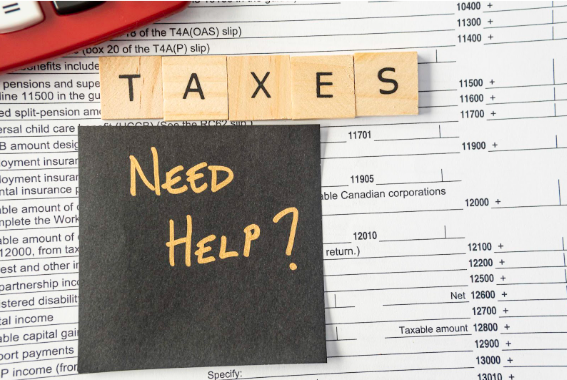
The Significance Of Teaching Children The Importance Of Money
Adults have to deal with money daily, yet this isn’t what most of us learned in school. Teaching your children about finance at a young age could help them learn the value of a dollar, the importance of saving, how to budget their money wisely, and to spend wisely. Educating youngsters about money can help them become more financially literate and better equipped to handle their own finances in the future.
Why Children Should Be Taught the Importance of Money
A lack of financial education can have serious effects on both parents and their children. It’s not ideal for parents to use their savings to assist their adult children, especially in retirement, when they had hoped to rest. Children who don’t learn how to manage their money as they grow up are more likely to make poor decisions in their adult lives, which can have a negative impact on everything from their relationships to their health.
As a preventive measure, begin the dialogue early on. We often overlook the fact that children receive money for birthdays, holidays, or allowances, and they will have to decide what to do with it. If you’re going to engage in conversation with them, make sure that it’s appropriate for their stage of development. Teach them how to save money in little steps and the importance of saving money while earning money.
When Should Parents Teach Youngsters About Money?
If they can demand things money can buy, they can learn about money. Even without using money, a 4- or 5-year-old can learn about money. When a child acts properly (says “please” and “thank you”) or completes their tasks (dresses for school or feeds the pet), they obtain a gold star. The gold star is their currency, and the assigned task is their job. They can redeem a star for a snack or save up for a bigger prize (similar to a savings account). From ages 6 to 8, those gold points can become an allowance (real money).
How To Teach Children About Money

One of the most crucial lessons young children should learn is the difference between items they need and want. Afterwards, knowing how to save enough for these items. Preschoolers do not comprehend, so to speak, that money does not grow on trees, nor do they comprehend the dollar’s value while purchasing items from the shop. Here are some strategies for assisting in their financial literacy:
Sort Their Money Into Different Categories
Opening a bank account for your youngster will allow you to educate them on how to divide up any money they get in the future—such as a birthday present from their grandparents. There is a percentage that is saved for enjoyable things that they might want. Another fraction is kept in a tin can in case they want anything from it. Another portion of the money is put away in a long-term savings account. The 50/25/25 is a good balance. It keeps them afloat in the short term while also allowing them to set money aside for future needs.
Saving money in a piggy bank can be utilized to buy a toy or to buy sweets at the corner store when the mood strikes. They’ll learn the cost of things fast, about being more selective in their purchases, and how to save for the bigger items if they have their own money to spend.
Saving for necessities can teach youngsters that money isn’t simply for enjoyable purchases, but is needed to live a normal life. There’s a possibility here to sit down with children and begin to establish what they need and what they want. A better understanding of their financial situation can help them identify what they need to spend their money on and the reason they are saving it.
You Should Let Them Deal With The Money
If children are never allowed to handle or spend money, they will have a difficult time understanding the worth of a dollar. Small amounts of cash or gift cards can help kids understand the math of how much they should spend on a certain item at the store. A transaction at the cash register, during which a child buys something and then receives change, might be used as a teaching moment for the child.
When children are spending their own money in a store, they do not simply put whatever they desire in the shopping basket and go. They carefully select what they want, and they understand very quickly that once the money is gone, it is gone forever.
This teaches kids how to keep a record of what they spend, which is a technique that many adults have trouble with now that debit and credit cards are so easy to use. Even small purchases can teach kids how to strategize with their money, which is a skill that can help them a lot as adults.
Be A Good Financial Role Model For Your Children
Your children will follow your lead, as they do with so many other things in life. Financial literacy, goal-setting, and foresight are all critical life skills. Financial discussions with your children can be difficult, especially if you believe you could benefit from some advice yourself.
The more you learn, the better able you will be to impart your knowledge to your children. When you know that your children are smart enough to make wise financial decisions, you will have a greater sense of security and confidence in your ability to raise them.
Final Thoughts

Children are innocent and harmless in their thinking and quests. They believe you should be able to provide everything they need after you leave for work every day. They see some of their friends in school that have things they don’t have and come home to disturb dad or mom to provide such things as a magician. These are some of the reasons why they need to be financially literate early in life, so they don’t live above their means in the near future.
If you are in debt, it makes it even more difficult to teach your kids about money because you feel if an adult like you can ‘swim’ in debt, what makes you a worthy teacher? You can, however, use the lessons you have gathered to teach your kids directly and indirectly. If you are confused as an adult and don’t know how to manage your debts, there are solutions that EmpireOne can discuss with you on how to become debt-free and financially educated. Book an appointment with us today and enjoy the financial freedom you deserve.





